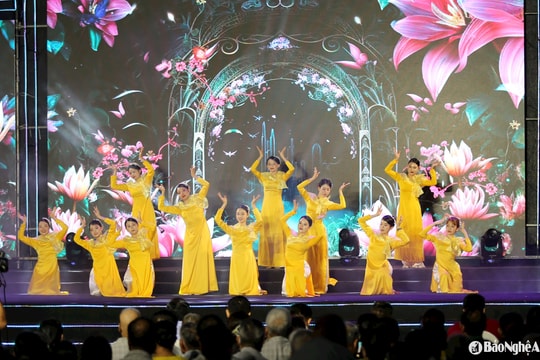Stunned by the land with the 'strangest accent in Vietnam'
(Baonghean.vn)- Nghe An's dialect is already difficult to understand, but with the dialect of Nghi Duc commune, Vinh city (Nghe An), many people can only listen but it is very difficult to understand...
“Chet oi, via en com” (Grandchild, come home to eat rice), “Chéo oi, deo rang do” (Grandchild, what's the pain), “Reng mêa lay pho rua” (Why did mom say that), “Tai mi bay ring rua” (What's wrong with your hand), “Cồn pheu” (Bamboo tree)... These are a few of the pronunciations Nghi Duc people use when talking to each other.
From ancient times until now, 2/3 of Nghi Duc people still use the above sentences to talk to each other. No one here can explain why their hometown people speak with such a “strange” accent.
Nghi Duc commune has 12 hamlets and is divided into "East Germany" and "West Germany". The West Germans, including 3 hamlets Xuan Duc, Xuan Hoa, Xuan Dong, speak with the same accent as other Nghe An people. Meanwhile, the East Germans, including hamlets Xuan Tin, Huong Tin, Xuan Huong, Xuan Trung, Xuan Thinh, Xuan Binh 13 and 14, Xuan My, Xuan Trang, 100% speak with the 'strange' accent as above.
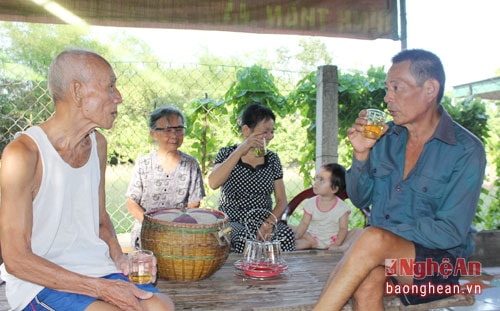 |
| Calling each other to drink tea and chat in the early morning is a daily routine for the people here. |
Nghi Duc people call their voice “familiar voice”, and when they speak in a normal accent like other Nghe An people, it is called “strange voice”. When talking to each other, Nghi Duc people always use their “familiar voice”. But when talking to outsiders, people in this land switch to using “strange voice” – a normal voice like other people.
What's special is that many Nghi Duc people have the ability to both "play" a Northern accent and "imitate" a Southern accent very well.
People from other regions come here, when listening to the locals speak, almost everyone is surprised by the Nghi Duc accent. No one understands what they are talking about. Many people say that this suburban commune has the strangest accent in Vietnam.
For a long time, there have been many funny situations for outsiders when witnessing Nghi Duc people talking to each other. Almost everyone thinks that they are speaking English or their ethnic language to each other?! The strange and difficult to understand pronunciations in the suburban commune of Vinh city are really interesting.
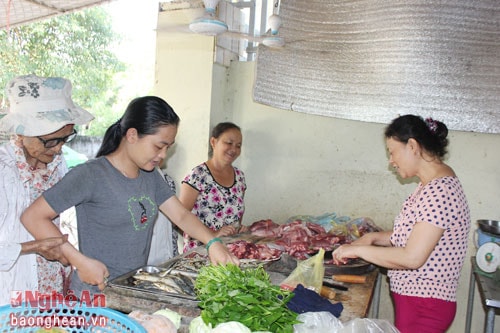 |
| The words loong (meaning tael), reo (vegetables)... are the dialects of the people here. |
Let's follow a dialogue of Nghi Duc people:
According to local history, Nghi Duc commune used to belong to Nghi Loc district, so the language of the people here belongs to the "Nghi Loc language" region. The elderly in Nghi Duc commune are the ones who have the most difficult accent to hear and understand. Because they have lived a long time with the customs and are familiar with the old way of life.
Mrs. Pham Thi Kien (80 years old, Xuan Huong hamlet, Nghi Duc) often talks to her great-grandson: "Chet oi, chet man cam do? Boa hun chet cach he", which means "Grandson, what are you doing? What are you kissing?" Or when she asks a neighbor about the rice situation this year: "Tềnh họnh lô mãa nem ni a reng ênh?", which means "How is the rice situation this year, brother?" Mrs. Kien calls her youngest son, Nguyen Anh Tuan, to come home for dinner: "Tún oi, via en cố" which means "Tuấn, come home for dinner"...
Children here, having been in contact with people from other areas, going to school here and there, have changed their accents a lot. Nowadays, most Nghi Duc children have changed to a normal Nghe accent, and a few still speak with a strong Nghi Duc accent like their grandmothers and mothers. But when they return to their hometowns or meet people from the same commune in faraway places, Nghi Duc people never speak any other accent than their own Nghi Duc accent.
Middle-aged people and the 8x and 9x generations here still speak Nghi Duc accent like the previous generations. A leg is called “cây chân” or “cây mienbac”, a hand is called “tai”, “tao” is called “teo”, a chicken is called “con goa”, a mother means “mia”, a father means “cho...oa”, a pig will be “transformed” into “con lan”…, a rock becomes “coc doa”. And many more words spoken by Nghi Duc people are very difficult to understand, and their accent is very difficult or even impossible to write in common words.
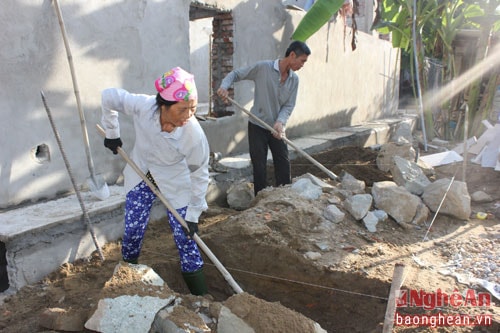 |
| Tired, work hard... |
Mr. Nguyen Dinh Tuyen - Chairman of the Nghi Duc Commune Elderly Association said: "Nghi Duc people have spoken like that since ancient times, I also do not know its origin. There are no historical documents that record it."
Currently, there are many discussions and studies surrounding the issue of Nghi Duc accent in particular and “Nghi Loc language” in general, but there is still no conclusion confirming the special origin of this dialect. And Nghi Duc accent has for a long time coincidentally become an unforgettable characteristic for those who have been here, have known and made friends with the people here.
Nghi Duc people have a very humorous poem about their hometown's accent:
"Nghi Duc two dear words
The native language is still clearly learned.
The name "you" is called "mi"
I-shrink, he-humiliate, what-shoes, she-o
And "boa" is definitely "cow"
Buffaloes "howl", "buffalo herd" (cow herd) understand?
"Khu" means butt,
Hands, feet, legs
Two two is called "crazy"
Potatoes are called "cu khuoi" correctly.
"Choac con" "man vong" (make a hammock) "teo moi" (I sit)
Banana leaf, wine button, bait, and always aim.
The official road is called "doang quon"
"National Highway" is definitely Highway 1A
The chicken is called "cuon goa"
Fish, crab, pig, flower, what a talent!
Free hands to sharpen the sword
Cut down the "choong noong" tree and go plow with your father.
"Cu doop" "coi diet" not bought yet
How many "payu" (coins) "man" (to be) king for how many "times" (times)?
"The troi" is a maggot
Areca nut, betel, tea, tobacco "study" (study) why do you need to "do" (work)
Potato leaves are called "di"
Young rice seedlings are called "mơong" and "lat pheo ri" (bamboo strips) are tied to"
Thien Thien
| RELATED NEWS |
|---|

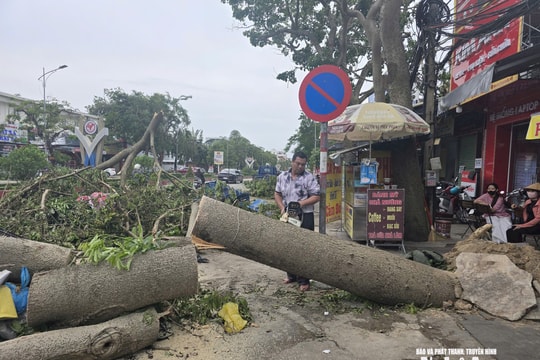

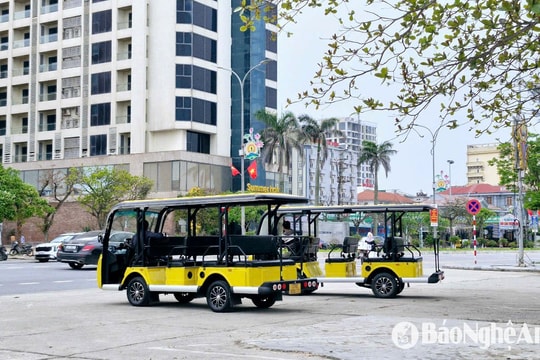
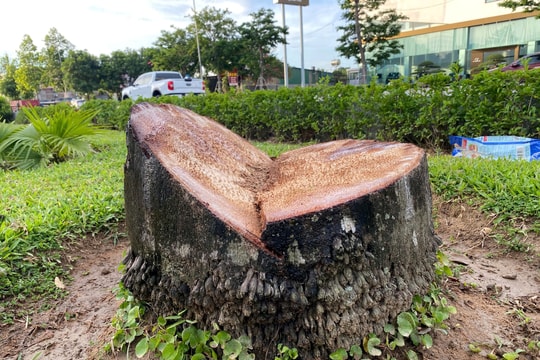
.jpg)

